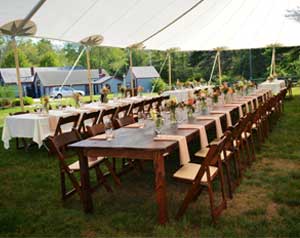
Airbnb has removed large party houses and invitation parties from its website. Airbnb also bans renting out party houses for Halloween or parties hosting more than 10 guests. These rules can make renting a party house tricky. But there are other options. Find out more. Here's an overview of Airbnb's partyhouse policies.
Airbnb bans large party homes
Airbnb has imposed a ban on large party homes. The ban was implemented initially as a health policy and has now become permanent. In the beginning, house parties were restricted to 16 people. Hosts are pleased with this policy, and complaints have been cut by 44%.
Airbnb said the rule was placed in place to protect both hosts and guests health. The ban on large parties was imposed in response to the Covid-19 pandemic that claimed the lives of more than 6100 people in the U.S. After receiving feedback from its hosts, the company decided to lift this restriction. The 16-person limit for large party houses will be lifted.

It also bans open invitation party houses
Airbnb has established new rules regarding parties and events that are not allowed. These new policies also prohibit large parties at multi-family residences or condos. Although these policies prohibit parties that are not invited, they don't prevent guests from attending authorized parties. These new restrictions do NOT apply to other types or Airbnb listings. Instead, they are monitored closely and host's listings may be removed if they are found to have broken the rules.
Airbnb announced that they would no longer allow open invitations to parties at any of its locations, following the California shooting. Airbnb has experienced a 44% decrease in party reports since then.
It prohibits rentals for one night on Halloween
Airbnb, which is based out of San Francisco, has announced that it will ban one-night rentals on Halloween weekend. This ban is applicable to all Airbnb properties located in the United States and Canada. Those who booked a one-night rental before the ban went into effect will be reimbursed for their reservation.
Airbnb is trying to reduce the number of unauthorized Halloween party rentals. In order to get rid of the problem, they are limiting users' availability to houses with four or more reviews. Those without good reviews will not be able to book a one-night rental on Halloween. This measure is meant to curtail the popularity of house parties.

It bans parties with more then 10 people
In an effort to prevent disruptive behavior, many Airbnb hosts have banned parties houses hosting more than 10 people. Because of concerns about large gatherings during the COVID-19 outbreak, the ban was implemented. Although the ban was originally intended to protect guests, it has become a common standard. It has also helped to reduce complaints about large gatherings by 44%, year-over-year.
The Airbnb party ban was introduced in August 2020, after a party in Glendora attracted 700 people. Glendora's city council eventually closed the event. Airbnb was sued in court by the party organizer. This led to the ban. Airbnb was originally intended to reduce complaints about parties. But it soon became a community policy that has been widely adopted. As a result, Airbnb hosts report a 44% drop in party reports compared to last year.
FAQ
What are the benefits of having a shopping list?
A shopping list helps you remember what you need to buy when you go grocery shopping. This will save you time and prevent you from running around looking for things you have forgotten. You can also use a shopping list to help you find the right aisle if you are not sure.
You will also save money by having a shopping list. You can also save money by making a list of what you need, such as milk, bread and eggs, butter, cheese, cereals, and other items, while you're at the grocery store.
How can I avoid being scammed online when buying?
It is crucial to be vigilant when shopping online. Before buying online, read reviews and check out customer feedback. Also, never send sensitive financial information via email. Instead, make use of a secure site such PayPal. You can be sure that your data is secure by using this site.
Is a debit card good to use when shopping online?
It all depends upon what you are buying, and how much. You should consider a debit or credit card if there are no extra fees associated with using your credit card.
You don't need to have cash on hand to buy a item. A debit card will not incur additional fees.
A debit card allows you to withdraw money from an ATM machine without incurring interest or other charges.
You can also purchase groceries and petrol at ATMs. This makes them convenient.
Statistics
- The tax is automatically added once you click the checkout button, so factor in an additional 20% when looking at the product page. (makeuseof.com)
- Last Black Friday, I bought a stove from Lowes at 40% off, receiving 24 months of interest-free financing (from Lowe's). (meetfabric.com)
- The vast majority only change a password to protect privacy a few times a year (27 percent) or, more likely, never (35 percent). (pcmag.com)
- All items on AliExpress have an estimated delivery time on the product page, and it's usually anywhere from 20 to 60 days. (makeuseof.com)
External Links
How To
What are safe online shopping skills?
Online shopping safety is a key skill that anyone can learn. It's important to know how you can shop at different sites without being scammed.
If you are looking for the best ways to buy items online, read on! This article provides all the tricks and tips you need to avoid falling for scams.
-
Do your research. Before you decide to shop online, it's essential to do your homework first. Review the company, read customer feedback and ask friends for their recommendations.
-
You can shop around. If you aren’t certain whether a particular retailer is trustworthy, compare prices from multiple sellers. Price comparison apps such Amazon Price Checker (Google Shopping) and Google Shopping are good options. These tools let you see which retailers have the lowest prices.
-
Be aware of red flags. When browsing product pages, be aware of any signs indicating a scammer may be trying to trick you. You may find fake sites that use misspelled words and grammar errors. They often sell fake or incomplete products.
-
Pop-up windows are a danger. Some websites use popups to collect personal data like passwords and credit cards numbers. If you encounter one of these, close them immediately by pressing "escape" or choosing another browser window.
-
Ask yourself questions. Ask yourself these questions whenever you visit a website. Is it offering something I need? Can I trust those behind it?
-
Don't divulge your personal information. Unless you initiated the transaction or provided financial information, do not give out your Social Security number, bank account numbers, or credit card details by phone or email.
-
Avoid clicking on links in emails. It's very easy to click on a link in an email and end up on a phishing site that looks exactly like the real thing. Avoid falling for this type of fraud by only opening emails from trusted source (such as banks).
-
Use strong passwords. Strong passwords should contain letters, numbers, symbols. Make sure you keep your password secret and never share it with others.
-
Downloading files should be done with care. Always download files directly from their source rather than opening them from email attachments. Never open attachments from unknown senders. You should delete any attachments that ask you to install software.
-
Report suspicious activity. If you suspect your identity was stolen, immediately contact your local police department. You can also file a complaint with the Federal Trade Commission.
-
Protect your device. Anti-malware protection should be installed on your computer. It could help stop hackers from accessing your private info.
-
Watch out for scammers targeting seniors. Seniors are at greatest risk of falling for scammers as they have less experience in identifying fraudulent websites and messages.